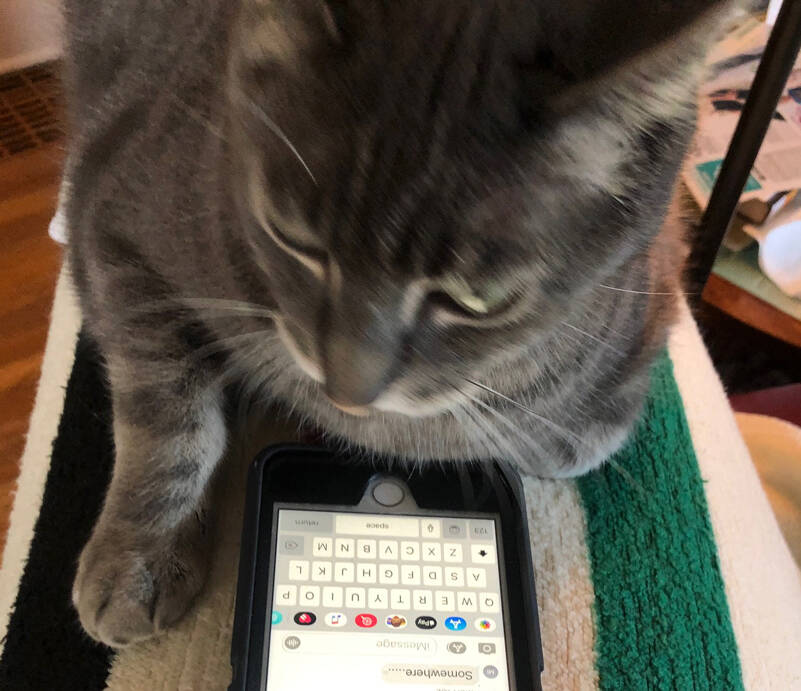By Morf Morford
Tacoma Daily Index
A “citizen” is generally defined as one who is a legally recognized subject or national of a state or commonwealth, either native or naturalized.
In the United States, in most cases, to become a “citizen” means you forswear allegiance to other countries – you deliberately declare yourself a citizen, a contributing, productive member of this, and no other, nation state.
We are born as citizens, or go through a voluntary, deliberate process to become a citizen of our nation of choice.
Or at least that’s how it used to work.
Somehow, in the era some of us are calling the digital age, by a process something like reverse-osmosis, almost all of us, not-always-intentionally, have become near-citizens of a world we are not quite prepared for.
With the fine print of the user agreement, most of us have taken something like a pledge of allegiance to an entity that knows more about us than most of our closest friends.
With most of us unwitting, even unwilling citizens of this digital “metaverse”, the rules, or algorithms, change and rule over the minutia of our lives.
Facebook alone has more “citizens” than any nation in the world – at any point in history.
Amazon claims that in 2020, there were 142.5 million Amazon Prime subscribers in the US alone. That is about half of the US population.
The projections for the next couple of years point to over 10 million more, with the number reaching 153 million in 2022.
The digital world even holds its own currencies – Bitcoin, NFTs – and a thousand, or infinite number, of variables.
Will digital currencies replace the dollar as the world’s medium of exchange?
In some circles, it has already.
“I miss the 20th Century”
“I miss the 20th Century” was a line in comic in a recent newspaper.
I often find that comics (or comedians) often say things that the rest of us aren’t quite ready to face yet.
This is a good example.
Of course, there is no going “back” to the 20th Century, that simple, even mythical time before smart phones, cyber-hackers, avatars and apps.
Life BF and AF (Before Facebook and After Facebook)
Facebook, for a variety of reasons is changing some strategies – and even its name – https://gizmodo.com/facebook-plans-to-change-its-name-because-the-brand-is-1847898319?
Mark Zuckerberg’s advocacy of “the metaverse” is, to put it mildly, meeting mixed reviews. (Facebook announced that it would hire 10,000 people in Europe to work on creating the metaverse.)
The term “metaverse” is far from new – it has been a background for dystopian sci-fi for decades.
Remember the glowing promises of IOT? (the Internet Of Things)
Did any of us ever really need “smart” and interconnected refrigerators, HVAC and vehicles?
Being “connected” after all, mostly means more susceptible to hacking and other cyber-intrusions.
Does the near constant presence of cyber-stalking and ransomware make you want to step/invest in the digital world even more or does it make you more leery – and maybe even a bit more appreciative of IRL (In Real Life)?
Facebook has been in a major damage-control mode lately as it has attempted to rescue its reputation following a tsunami of bad news linked to misinformation on its platforms, content moderation failures and revelations about the negative effect its products have on some users’ mental health.
Given the visibility and the forum for this change in branding, the obvious conversation emerged; alternate suggestions for a name for the social media network.
Fakebook, Divorce Central, The Social Media Platform Formerly Known As Facebook, Feces-Book, Boomer-book, among many others, have emerged.
To put it bluntly, the Facebook brand is not seen as a positive force in many people’s lives.
Other companies have recreated themselves (or at least their public images); Kentucky Fried Chicken shortened its name to KFC, Japanese car brand Datsun became Nissan, Federal Express became FedEX and the World Wrestling Federation became World Wrestling Entertainment.
Some name changes are more successful than others.
And changing the name might not even address the real issues.
When Facebook had its IPO, the stock price wavered for a couple reasons; what exactly WAS Facebook? And what would keep another social media company from making a better product in the next five years?
Truth Social
Former President Donald Trump just might step in to fill this gap.
The sheer volume and intensity of Trump’s controversial comments across social media were defining points of his presidency. His multiple social media bans have led him to create his own platform.
If anyone is a master of defining and energizing their base, that would be Donald Trump.
If you thought Mark Zuckerberg was an unlikely prophet of the metaverse, wait until Mr. Trump steps up.
And Truth Social is such a clunky name that we know that it, too, will have a name-change in its future.
With its inspiration on and around Donald Trump, we can only hope it will be more successful than Trump Steaks, Trump Vodka or Trump University.
You can see the declaration of resistance to “Big Tech” here – https://tmtgcorp.com/press-releases/announcement-10-20-2021/.
Or you could revive your MySpace account.
Or even step outside and leave your device and the lure of the metaverse far behind.





